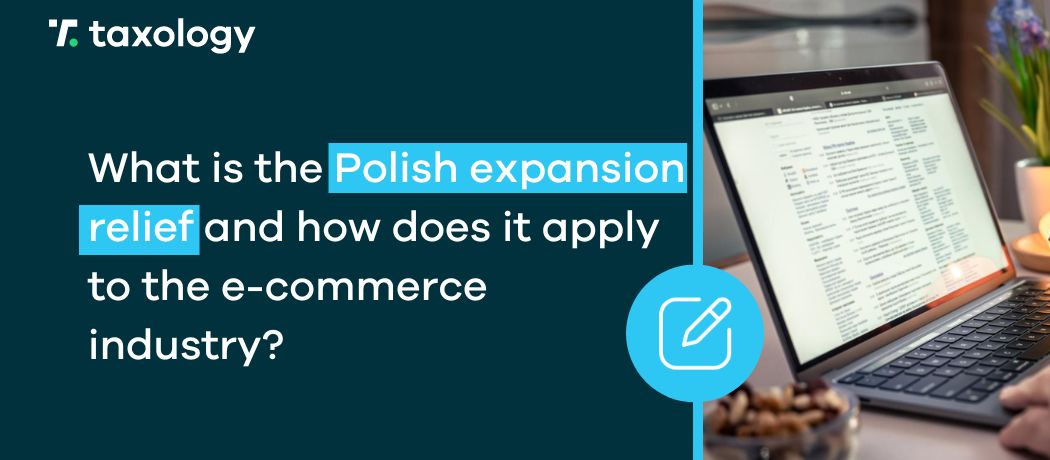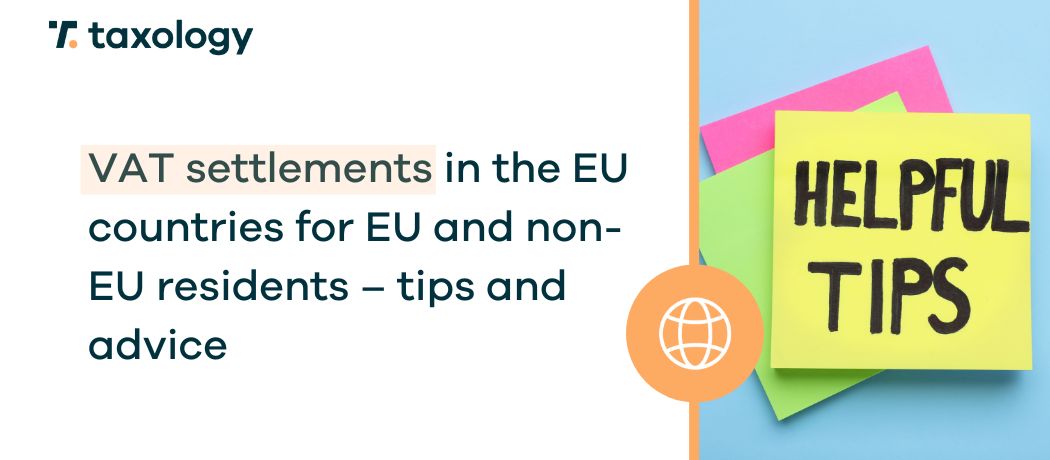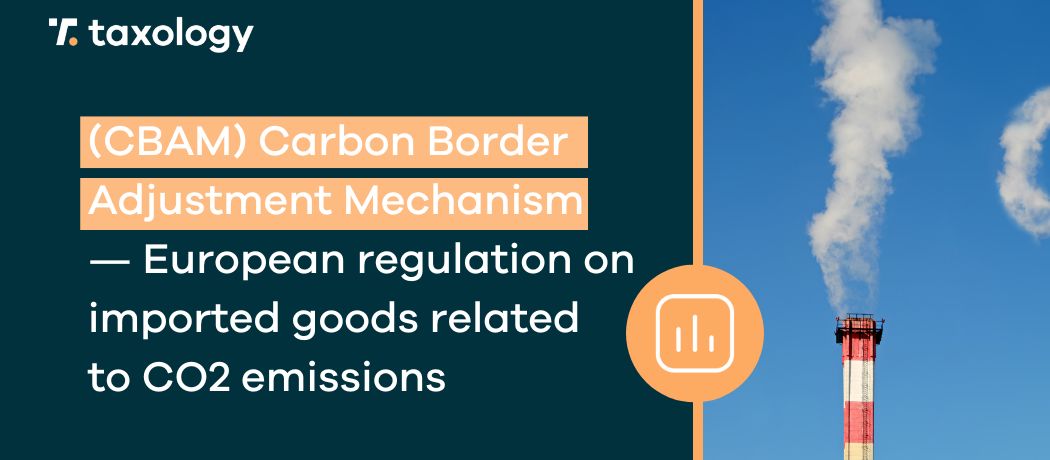VAT settlements in European Union countries are a key aspect of financial management for any business operating on the international market. Understanding the rules that govern these settlements is essential […]
Read in: 5 minWhat is the Polish expansion relief and how does it apply to the e-commerce industry?
- Last update: 21.02.2024
- Published: 19.12.2023
- Read in: 6 min
For many entrepreneurs, the concept of the “New Deal” is associated with a lot of confusion in the area of tax settlements, as the regulations of the New Deal introduced a series of significant tax changes in a very short time.
However, upon closer analysis, it turns out that the New Deal also contained beneficial provisions – including a series of tax reliefs and exemptions. This article will present information on the expansion relief, which is a simple mechanism that allows for a reduction in tax liabilities – up to PLN 190,000 per year.
From this article, you will learn:
- What is the expansion relief?
- What opportunities does the expansion relief offer?
- What income acquisition costs can be deducted as part of the expansion relief?
- Increasing revenue from the sale of products as a condition for using the expansion relief – how to understand it?
- What are the limitations in using the expansion relief?
- What is the relationship between the expansion relief and the tax return?
- How does the expansion relief apply to the e-commerce industry?
What is the expansion relief
The expansion relief is a tax policy tool introduced on January 1, 2022, regulated in Article 18eb of the Corporate Income Tax Act and Article 26gb of the Personal Income Tax Act.
It can be used by PIT taxpayers who earn income from non-agricultural business activity and CIT taxpayers achieving income other than capital income.
The expansion relief allows for an additional deduction from the tax base of income acquisition costs incurred to increase revenues from the sale of products in foreign markets. Costs incurred to increase revenues from the sale of products are deductible twice – once as costs included in the calculation of income and once as a deduction from the CIT or PIT tax base.
What does the expansion relief enable?
As we mentioned, the expansion relief concerns expenditures incurred to increase the sale of products, but does not apply to the sale of services by entrepreneurs! The relief allows for the deduction of up to PLN 1 million in costs incurred on expenditures related to expansion into foreign markets.
The relief is primarily intended for product manufacturers – it does not cover goods sellers.
What costs can you deduct as part of the expansion relief?
It should be emphasized that the possibility of reducing the tax base only applies to expenses classified as so-called qualified costs listed in tax regulations. Qualified costs are considered to be income acquisition costs incurred to increase revenues spent on:
- participation in fairs (organization of an exhibition space, purchase of airline tickets for employees and the taxpayer, accommodation and meals for employees and the taxpayer);
- promotional and informational activities (including the purchase of advertising space, website preparation, press publications, brochures, information catalogs, and leaflets concerning products);
- adjustment of product packaging;
- preparation of documentation enabling the sale of products, in particular regarding the certification of goods and trademark registration;
- preparation of documentation necessary to participate in a tender, and also for submitting offers to other entities.
The deduction will be granted if the given costs were not financed by a grant or settled within another relief.
Increase in revenues from the sale of products and other necessary conditions for using the expansion relief
The taxpayer is entitled to the deduction, provided that in the period of two consecutive tax years (counting from the tax year in which the costs were incurred), they increased revenues from the sale of new products. The regulations do not specify any limit of revenue growth. In practice, therefore, it is enough to increase sales even by PLN 1.
It is worth noting that the increase in revenues can also include sales results of products not previously offered or sales of products not previously offered in a given country.

Need help with VAT or e-commerce accounting?
You’ve come to the right place! Contact us and our specialists will handle the rest. Regardless of whether it is a relief for expansion, e-commerce accounting or VAT Compliance – registration, settlement and declarations of VAT and VAT OSS!
Schedule a consultationExpansion relief and limitations
Based on the interpretations of tax authorities, the primary limitation of the expansion relief is the nature of the goods sold.
In particular, tax regulations regarding the expansion relief refer to expenditures related to increasing revenues from the sale of products. At the same time, it is assumed that products, in the sense of the law, can only be tangible items (material objects) produced by the taxpayer. This means that e-commerce sellers will be able to take advantage of the relief only if they are the manufacturers of the products sold.
Entrepreneurs who sell products to related entities also cannot take advantage of the expansion relief.
The expansion relief in the tax return preceding the year of incurring costs
The relief is applied exclusively within the annual tax return. This means that after the end of the tax year, taxpayers can show the appropriate deduction from income in the tax declaration filed for that year – indicating the amount of qualified expenses incurred. As a result, the tax declaration will show a tax refund amount for the taxpayer.
If the amount of the deduction is greater than the earned income, the surplus is carried over to the next year for no longer than 6 consecutive calendar years.
The expansion relief in the e-commerce industry, documentation, and types of expenses
Tax regulations do not contain detailed requirements for documenting expenses incurred for expansion. In particular, there is no need to prove that the expenses actually contributed to an increase in revenues from the sale of products in foreign markets.
The range of qualified costs is also very broad. According to tax interpretations, they include, among others, costs incurred on online advertising campaigns (e.g., Facebook, Google Ads) and costs of using foreign sales platforms (e.g., Amazon).
In practice, taking advantage of the relief is very simple and can bring significant financial benefits, as the costs of sales platforms generally constitute one of the most significant expenses related to foreign sales.
Expansion relief in the e-commerce industry - summary
The expansion relief is a tool directed to PIT or CIT taxpayers who incurred costs to increase revenues from the sale of products, such as adjusting product packaging to meet customer requirements, conducting promotional and informational activities, participating in fairs (which includes, for example, purchasing airline tickets, accommodation, and meals), or preparing a website or documentation, in particular concerning the certification of goods.
The expansion relief allows for the deduction from the income tax base of the costs of acquiring income incurred during the process of increasing revenues from the sale of products. However, to take advantage of the expansion relief, revenue growth must occur in the period of two consecutive tax years following directly after the period in which the costs incurred to increase revenues from the sale of products occurred.
If you are unsure whether you can take advantage of the expansion relief or need tax income consultation, its settlement, or other aspects related to it, schedule a tax consultation with our specialists and gain confidence that your settlements are conducted correctly.
Also, contact us if you are selling products and services in the e-commerce industry and need support with accounting or VAT and VAT OSS issues – registrations, settlements, or declarations. Our VAT Compliance team is here to help!




